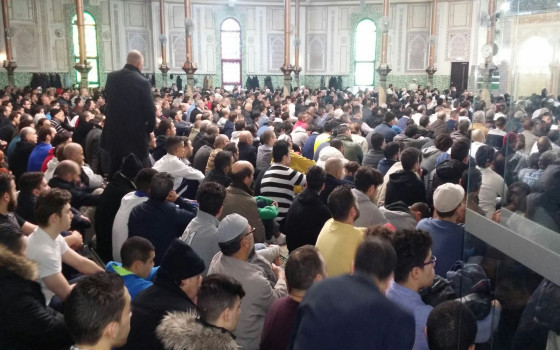
The niqab was banned in Portugal after a heated debate in Parliament... becoming the fifth European country after France, Belgium, Austria and the Netherlands.

- Europe and Arabs
- Saturday , 18 October 2025 10:29 AM GMT
Lisbon - Brussels: Europe and the Arabs
Yesterday, Friday, the Portuguese Parliament approved a draft law prohibiting the wearing of veils that cover the face, such as the burqa and niqab, in public places. Observers view this measure, introduced by the far-right Chega party, as an attack targeting Muslim women and their religious expressions. The ban applies to clothing that conceals the face “for reasons related to gender or religion,” and will go into effect in most public places, with the exception of airplanes, diplomatic buildings, and places of worship. The media in Brussels paid attention to this matter, and the Belgian newspaper NewsBlad said, “The law stipulates the imposition of fines ranging from 200 to 4,000 euros on those who do not adhere to the ban. In addition, those who force others to wear the niqab could face a prison sentence of up to three years. President Marcelo Rebelo de Sousa has not yet signed the law, and he has the option of vetoing it or sending the text to the Constitutional Court.” To review it.
If ratified, Portugal would join countries such as France, Belgium, Austria and the Netherlands, which already have a similar ban. Although the number of women who wear such a niqab is limited in Portugal, the issue has sparked intense controversy, as is the case elsewhere in Europe.
President Marcelo Rebelo de Sousa must still sign the law and has the option of vetoing it or sending the text to the Constitutional Court for review.
Shiga defends the proposal as a measure to promote "freedom, equality and human dignity" and says the face covering puts women in a position of "exclusion and inferiority". The party received support from center-right parties such as PSD, Iniciativa Liberal and CDS-PP.
Leftist parties, including the Socialist Party, Livre, Communist Party, and Bloco de Esquerda, voted against it. Pedro Delgado Alves (PS) called the proposal “an attack on foreigners and followers of other religions” and warned that it harms religious freedom. He stressed that it is not permissible to force women to wear the niqab, but the ban does not provide the correct solution.












No Comments Found